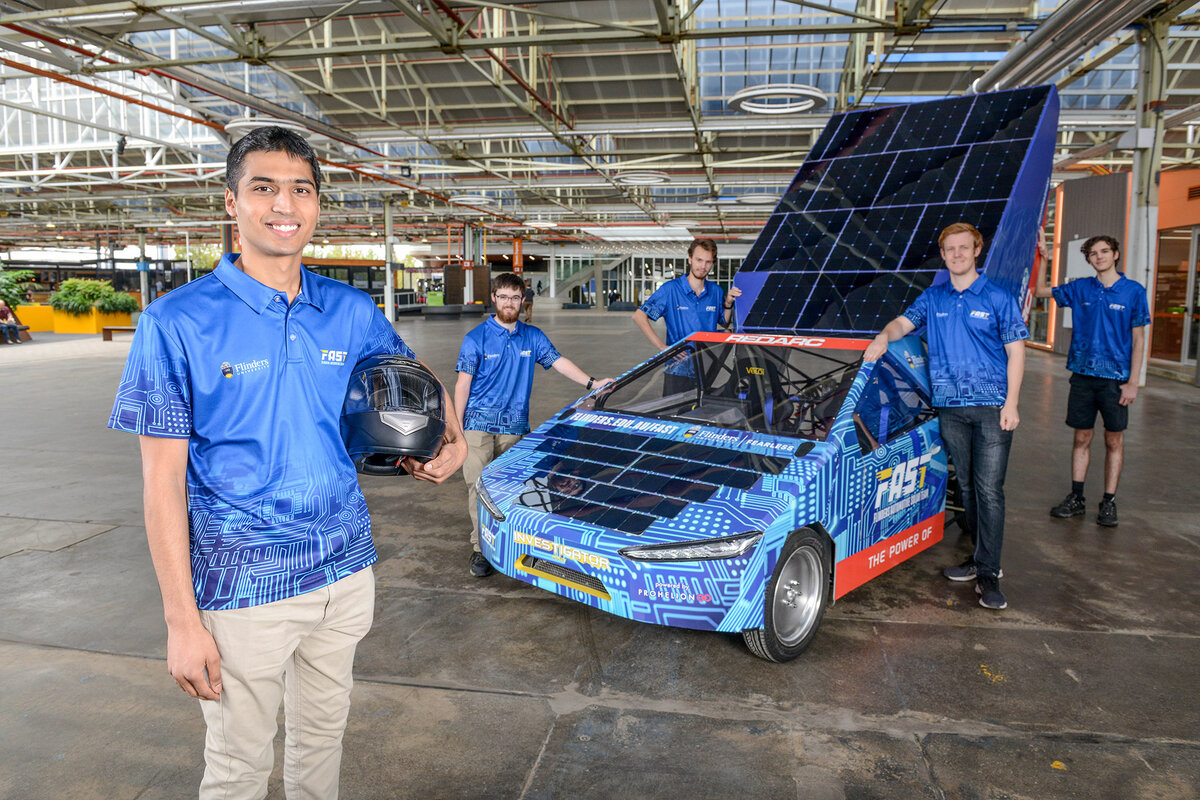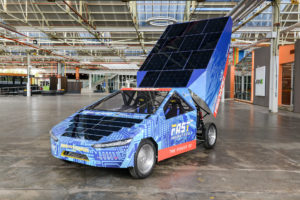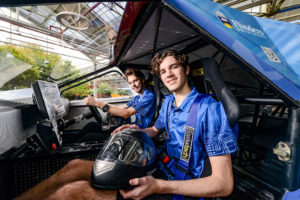
In another step towards sustainability, Flinders University recently launched the latest design of its new REDARC Flinders Automative Solar Team (FAST) solar car at Tonsley. The FAST car, named Investigator IV, will compete in the 2023 Bridgestone World Solar Challenge from Darwin to Adelaide.
After months spent brainstorming improvements upon the previous version of the car, and more time transforming those ideas into reality, the team of international and domestic student engineers were finally able to launch the latest design of the car, inspired by the Tesla Cybertruck.

With the race only a year away, FAST revealed the futuristic car they plan to drive 3,000 kilometres with a range of high-tech and automotive technologies thanks to an industry collaboration with Lonsdale-based manufacturer, REDARC Electronics.
FAST is looking towards the future of solar car technology, the South Australian renewable energy industry and job opportunities for students with their latest vehicle concept, which is based on a design moulded for the requirements of the cruiser class in the iconic South Australian race, to be held on 20-27 October 2023.
‘Being part of the solar car program has given me the opportunity to learn industry-standard software used in engineering, such as modelling and 3D simulations. I have been able to apply my engineering skills to real world problems whilst also maintaining proper engineering documentation, which are highly sought-after skills in industry,’ says Flinders University engineering student Nishant Bazzad.
At the unveilling, Flinders University Vice-President (Corporate Services) Mr Mark Gregory spoke about the importance of the FAST project for students who are offered the chance to test our their skills in the real world.

‘The FAST project is an excellent opportunity for our students to learn how to integrate solar and battery technologies in a real-world engineering challenge. The program is both fun for our students and completely in line with our sustainability goals as a university.’
‘Flinders has already begun the transition of our entire fleet of vehicles to electric and our campus is using 100% renewable electricity generated on campus or here in South Australia. Since the introduction of our campus solar and wind farm agreements, Flinders has reduced our greenhouse gas emissions by ~25% in 2021 and achieved net-zero emissions from our electricity use,’ says Mr Gregory.
Guests also heard from Mr Anthony Kittle, REDARC Electronics CEO, who spoke about the long history of collaboration between Flinders University and REDARC, and how the values of the two organisations are closely aligned key areas.
To read more about the latest design of the solar car, click here.

